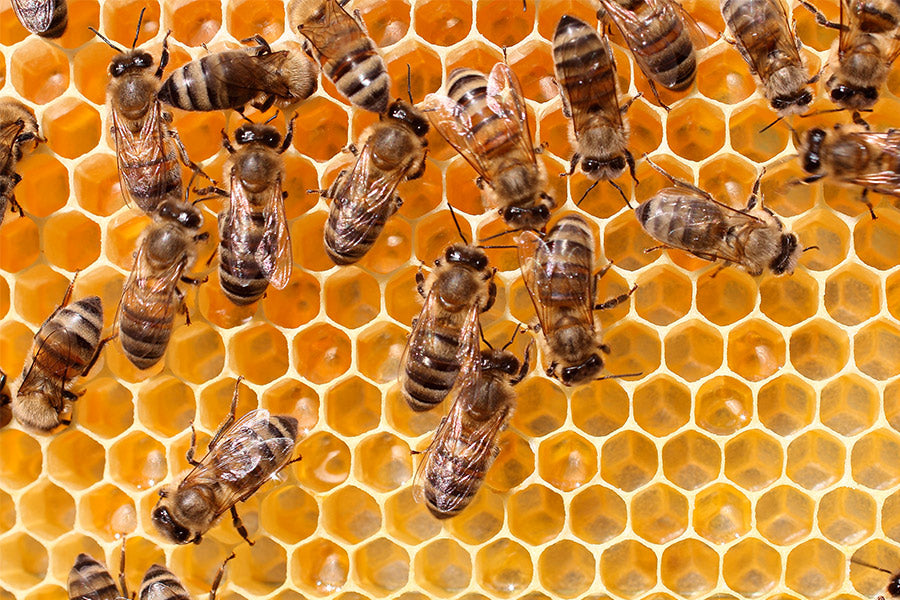Bees are one of the most rad insects on the planet. The stuff they do inside a beehive is like a sci-fi movie, making one of nature’s most perfect structures a truly fascinating place.
A beehive is an enclosed structure designed to make lots of babies—and honey. This complex hexagonal structure is filled with replicating cells, known as the honeycomb. These tiny pockets are used for storing food sources—pollen and honey.
But it’s the sophisticated hierarchy within the beehive that’s the stuff of legend. The queen bee doesn’t really rule the roost like most people think. Her sole function is to mate with the top male “drone” bees and lay eggs around the clock in April and May—some 2,000 a day!
Drones are simply sex machines, performing no communal task for the beehive other than trying to win the queen over. Once they do, drones are evicted from the hive.
Adding to the complexity, the queen can lay two types of eggs: 1) fertilized, which she deposits in the smallest comb cells (just 5 millimeters) to produce new female worker bees, and 2) unfertilized, which fit in larger cells and turn into male drones through a process called “parthenogenesis.”
It’s the thousands of female worker bees that really do the heavy lifting in the hive. This badass crew delegates jobs by age: collecting pollen and nectar; providing water to the hive; caring for the queen and her babies; protecting the entrance; and cleaning like crazy.
Their goal is to keep the beehive tidy and functional so it will produce as much honey as possible—ideally up to 60 pounds a season. That happens when nectar placed in comb cells breaks down into simple sugars. As bees’ wings constantly fan the liquid it evaporates into what we know as sweet, syrupy honey.
Those hard-working lady bees also manage over-population by “swarming” to find new hive sites sometime from March through July. After about three years a
queen is past her egg-laying prime and new virgin queen must emerge to carry on the colony.
It’s a complicated process, but new queens are born from a fertilized egg dropped in a special queen cell, fed fancy “royal jelly” and capped with wax.
And the cycle continues anew.
But this is just the tip of the honeycomb. Understanding the processes and cast of characters inside a beehive could keep you up all night. Feel free to investigate further, but first fuel up with some energy-sustaining honey.



